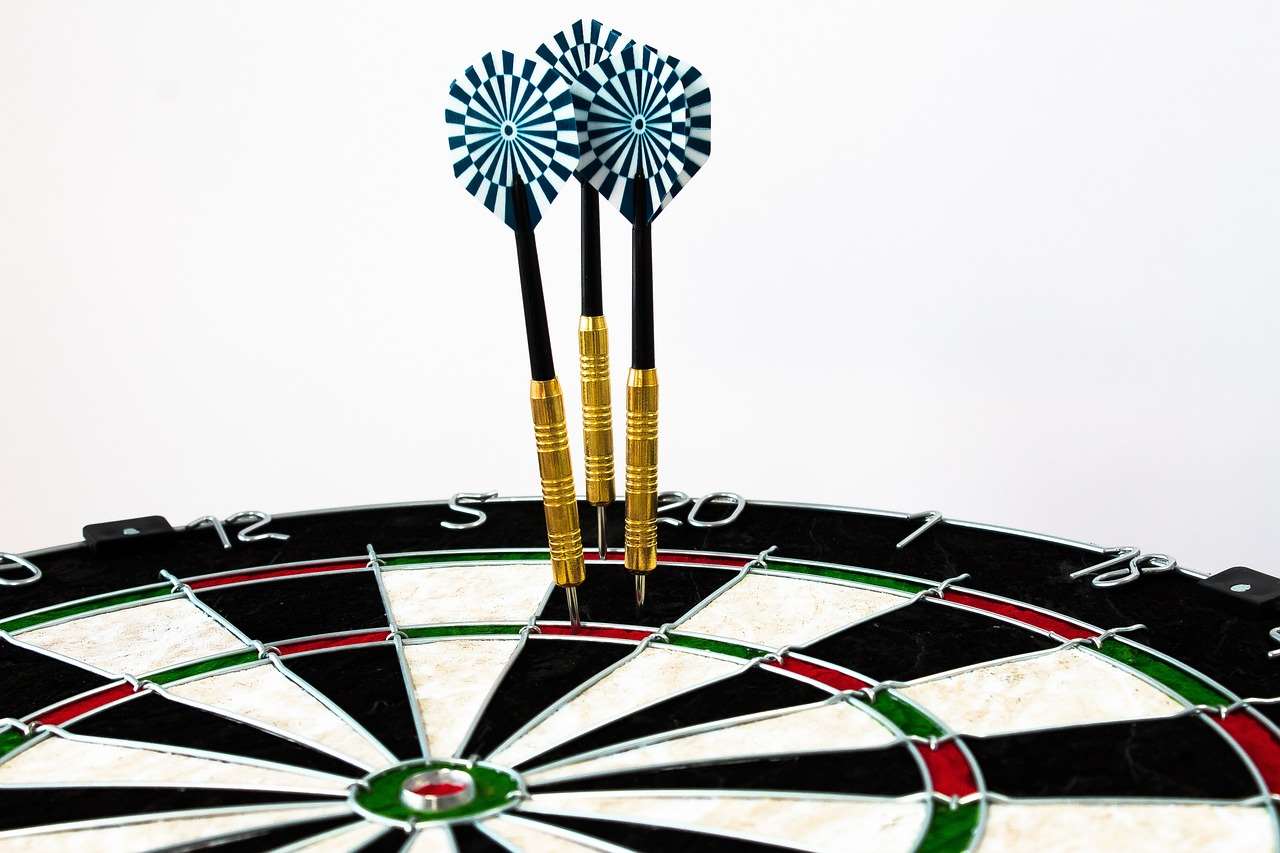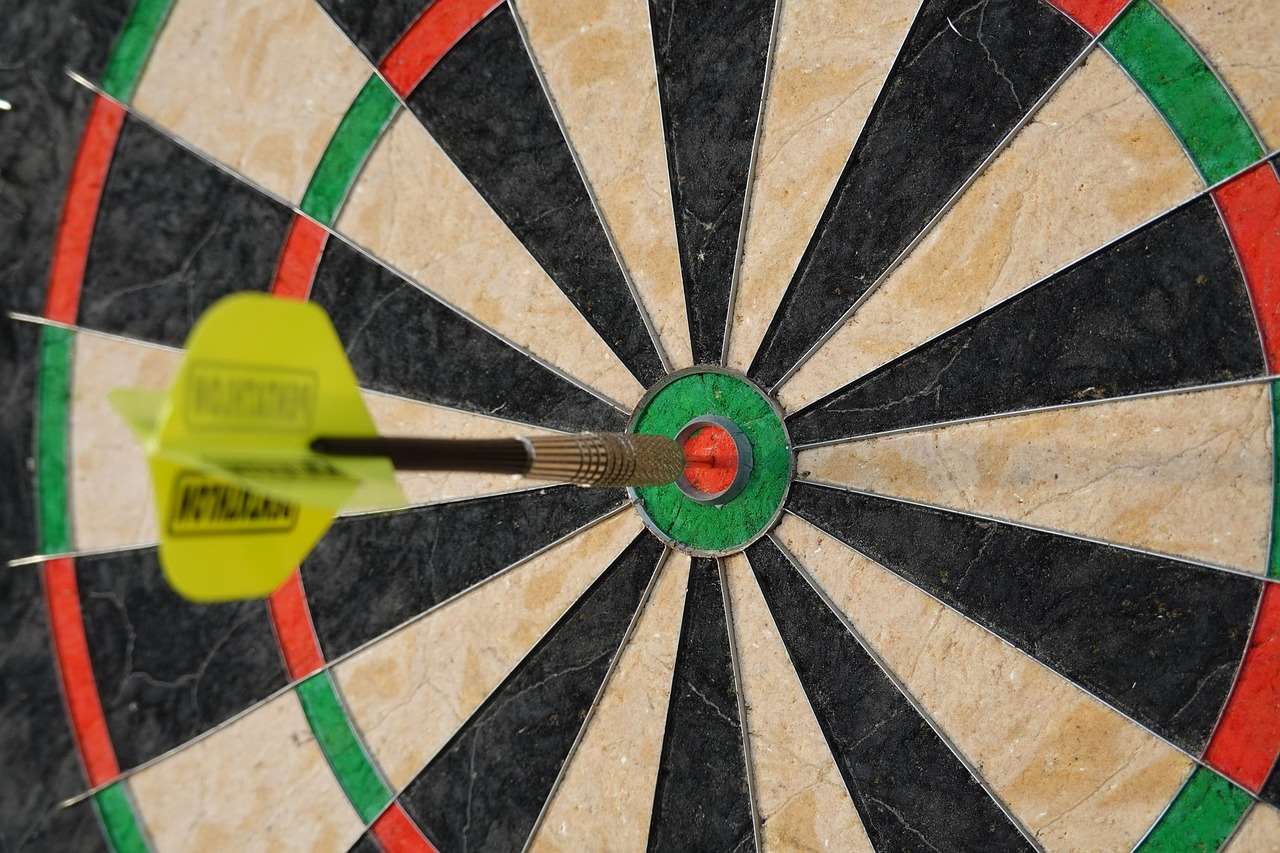In the high-stakes world of professional darts, where precision and composure are paramount, even seemingly minor darts fouls can have a significant and lasting impact on player reputation. This article delves into the various types of infractions, their potential consequences, and how they can affect a player’s standing in the eyes of fans, peers, and sponsors. We’ll explore specific examples, analyze the psychology behind unintentional vs. intentional fouls, and offer insights into how players can maintain their integrity and avoid damaging their careers through rule violations and ethical lapses.
⚠️ Still Using Pen & Paper (or a Chalkboard)?! ⚠️
Step into the future! The Dart Counter App handles all the scoring, suggests checkouts, and tracks your stats automatically. It's easier than you think!
Try the Smart Dart Counter App FREE!Ready for an upgrade? Click above!
Understanding Darts Fouls: Impact on Player Reputation
The game of darts, at its core, is a contest of skill and mental fortitude. However, like any sport, it is governed by a set of rules designed to ensure fair play. Darts fouls, whether intentional or accidental, can tarnish a player’s image and raise questions about their sportsmanship. The impact on player reputation can range from mild disapproval to severe consequences, including fines, suspensions, and even the loss of sponsorships. It is crucial for every dart player, from amateur to professional, to understand these rules thoroughly.
Defining a Darts Foul
So, what exactly constitutes a darts foul? While specific regulations may vary slightly between different organizations and tournaments, some common infractions include:
- Foot Faults: Stepping over the oche (the throwing line) during the throw.
- Illegal Dart Placement: Throwing a dart before all previous darts have been retrieved from the board.
- Interference: Obstructing or distracting an opponent during their throw.
- Incorrect Scoring: Misreporting or manipulating scores.
- Time Violations: Exceeding the allotted time to throw darts.
These fouls may seem minor, but even unintentional infractions can be viewed negatively, especially if they occur repeatedly or during crucial moments of a match. It’s important to always remember basic darts fundamentals for beginners, which include adhering to these fundamental rules.

The Psychology of Fouls: Intent vs. Accident
The perception of a darts foul is heavily influenced by whether it is perceived as intentional or accidental. An accidental foot fault, for example, might be forgiven easily, especially if the player immediately acknowledges the mistake. However, repeated or blatant violations, even if claimed to be unintentional, can raise suspicions and lead to accusations of cheating or gamesmanship. The player’s history and overall demeanor also play a significant role in shaping public opinion. Are they known for being a fair player, or have they had previous incidents of questionable behavior? Maintaining a reputation for integrity is crucial in mitigating the damage from accidental fouls.
The ‘Win at All Costs’ Mentality
In the high-pressure environment of professional darts, the desire to win can sometimes lead players to push the boundaries of acceptable behavior. This “win at all costs” mentality can result in intentional fouls or attempts to exploit loopholes in the rules. However, such tactics often backfire, as they can severely damage a player’s reputation and lead to long-term consequences. While striving for victory is natural, it should never come at the expense of fair play and ethical conduct. Consider how you might implement some strategies for how to make darts fairer with handicap rules if you suspect foul play is rampant.
Consequences of Darts Fouls: Impact on Player Reputation Beyond the Game
The consequences of darts fouls extend far beyond the immediate match. Here’s a breakdown of the potential repercussions:
- Financial Penalties: Fines imposed by tournament organizers or governing bodies.
- Suspensions: Temporary bans from competing in tournaments.
- Loss of Rankings: Deduction of ranking points, affecting tournament seedings and qualifications.
- Sponsorship Losses: Termination or non-renewal of sponsorship deals due to reputational damage.
- Damage to Public Image: Negative media coverage, criticism from fans, and erosion of trust.
- Peer Disrespect: Loss of respect from fellow players, leading to strained relationships and exclusion.
The impact on player reputation can be devastating, particularly for players who rely on sponsorships and endorsements for their livelihood. A tarnished image can make it difficult to attract new sponsors or maintain existing partnerships. Moreover, the psychological impact of negative publicity and peer disapproval can affect a player’s confidence and performance on the oche. We should always strive to play with honor and adhere to darts etiquette.
Case Studies: When Darts Fouls Impacted Reputations
Examining real-world examples can provide valuable insights into how darts fouls can affect player reputations. While specific details may vary, several instances have highlighted the potential consequences of rule violations and unsportsmanlike conduct. Remember to review the basic darts fundamentals for beginners to avoid basic mistakes.
Hypothetical Examples
- The Foot Fault Controversy: A top-ranked player is repeatedly called for foot faults during a televised match, leading to accusations of intentional rule-bending and sparking debate among fans and commentators.
- The Scoring Scandal: A player is caught deliberately misreporting their score, resulting in a disqualification and a public apology.
- The Distraction Tactic: A player is accused of intentionally distracting their opponent during a crucial throw, leading to accusations of unsportsmanlike conduct and a formal warning from the tournament organizers.
These examples illustrate how even seemingly minor infractions can escalate into major controversies, significantly impacting a player’s reputation and career. The key takeaway is that maintaining a reputation for integrity is paramount, regardless of the pressure to win. The darts community is close knit and observant, so integrity is key!

Preventing Darts Fouls: Maintaining Integrity and Avoiding Reputation Damage
The best way to avoid the negative impact on player reputation caused by darts fouls is to prevent them from happening in the first place. Here are some practical tips for players to maintain their integrity and avoid rule violations:
- Know the Rules: Thoroughly understand the rules of the game and any specific regulations of the tournaments you participate in.
- Practice Proper Technique: Develop a consistent throwing technique that minimizes the risk of foot faults or other accidental violations.
- Maintain Composure: Stay calm and focused during matches, even under pressure, to avoid making careless mistakes.
- Be Respectful: Treat your opponents, officials, and fans with respect, regardless of the outcome of the match.
- Acknowledge Mistakes: If you accidentally commit a foul, immediately acknowledge it and apologize.
- Seek Clarification: If you are unsure about a rule or situation, ask an official for clarification.
By following these guidelines, players can significantly reduce the risk of committing darts fouls and protect their reputation. It’s about respecting the game, your opponents, and yourself. The key is in adapting darts rules for beginners to ensure fair play.
Ethical Considerations in Professional Darts
Beyond simply adhering to the rules, ethical considerations play a vital role in maintaining a positive player reputation. This includes:
- Fair Play: Always striving to win fairly and honestly, without resorting to cheating or unsportsmanlike conduct.
- Transparency: Being open and honest about any potential conflicts of interest or rule violations.
- Accountability: Taking responsibility for your actions and accepting the consequences of your mistakes.
Upholding these ethical principles is essential for building and maintaining trust within the darts community. Remember, your reputation is your most valuable asset.

The Role of Governing Bodies and Tournament Organizers
Governing bodies and tournament organizers also have a crucial role to play in preventing darts fouls and protecting the integrity of the sport. This includes:
- Enforcing the Rules: Consistently and fairly enforcing the rules of the game.
- Providing Clear Guidelines: Providing clear and concise guidelines for players regarding acceptable behavior.
- Educating Players: Educating players about the rules and ethical considerations.
- Investigating Allegations: Investigating allegations of rule violations and taking appropriate action.
- Promoting Fair Play: Promoting fair play and ethical conduct through educational programs and public awareness campaigns.
By actively promoting fair play and consistently enforcing the rules, governing bodies and tournament organizers can help to create a culture of integrity within the darts community. The better the foundation, the less impact on player reputation.
Using Technology to Detect Fouls
With advancements in technology, there is a growing opportunity to utilize tools like high-speed cameras and sensors to detect foot faults and other infractions with greater accuracy and consistency. Implementing such technologies could help to eliminate ambiguity and reduce the potential for disputes. Ultimately, this would protect honest players and further safeguard the game’s integrity. Think about this when you are alternative darts rules for home play.

Repairing a Damaged Reputation: Strategies for Recovery
Even with the best intentions, players can sometimes make mistakes that damage their reputation. If this happens, it’s important to take proactive steps to repair the damage and regain the trust of fans, peers, and sponsors. Here are some strategies for recovery:
- Acknowledge the Mistake: Publicly acknowledge your mistake and apologize sincerely.
- Take Responsibility: Take full responsibility for your actions and avoid making excuses.
- Demonstrate Remorse: Show genuine remorse for your actions and express a commitment to doing better in the future.
- Make Amends: If possible, make amends for your actions, such as donating to charity or volunteering your time.
- Seek Guidance: Seek guidance from mentors, coaches, or sports psychologists on how to improve your behavior and decision-making.
- Be Patient: Rebuilding a damaged reputation takes time and effort. Be patient and persistent in your efforts to demonstrate your commitment to integrity.
By taking these steps, players can begin to repair the damage caused by darts fouls and rebuild their reputation over time. The road to recovery may be long, but with dedication and perseverance, it is possible to regain the trust and respect of the darts community. If you can adapt the game a bit, you can introduce some fun dart game variations with modified rules.

Conclusion: Upholding Integrity in the World of Darts
In conclusion, darts fouls: impact on player reputation is a serious issue that can have significant consequences for players’ careers and the integrity of the sport. By understanding the rules, maintaining composure, and upholding ethical principles, players can minimize the risk of committing fouls and protect their reputation. Governing bodies and tournament organizers also have a crucial role to play in enforcing the rules and promoting fair play. Ultimately, the responsibility for upholding integrity lies with each individual player. By prioritizing fair play and ethical conduct, players can contribute to a culture of respect and sportsmanship within the darts community. Are you ready to take your darts game to the next level while maintaining the highest standards of integrity? Take the first step by reviewing the official darts rules and committing to fair play today!
Hi, I’m Dieter, and I created Dartcounter (Dartcounterapp.com). My motivation wasn’t being a darts expert – quite the opposite! When I first started playing, I loved the game but found keeping accurate scores and tracking stats difficult and distracting.
I figured I couldn’t be the only one struggling with this. So, I decided to build a solution: an easy-to-use application that everyone, no matter their experience level, could use to manage scoring effortlessly.
My goal for Dartcounter was simple: let the app handle the numbers – the scoring, the averages, the stats, even checkout suggestions – so players could focus purely on their throw and enjoying the game. It began as a way to solve my own beginner’s problem, and I’m thrilled it has grown into a helpful tool for the wider darts community.